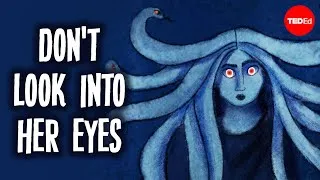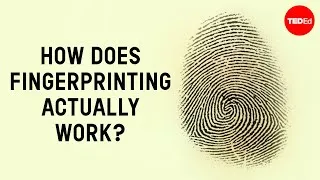请双击下面的英文字幕来播放视频。
翻译人员: Huihong Bai
校对人员: Yanyan Hong
00:07
Ethanol: this molecule, made of little
more than a few carbon atoms,
0
7014
5235
乙醇:其分子是由碳原子组成,
00:12
is responsible for drunkenness.
1
12249
2840
能够让人产生醉意。
00:15
Often simply referred to as alcohol,
2
15089
2661
乙醇通常被简称为酒精,
00:17
ethanol is the active ingredient
in alcoholic beverages.
3
17750
3370
是含酒精饮料中的活性成分。
00:21
Its simplicity helps it
sneak across membranes
4
21120
2720
简单的分子结构使它能透过细胞膜,
00:23
and nestle into a many different nooks,
5
23840
2320
并停留在许多不同位置,
00:26
producing a wide range of effects
compared to other, clunkier molecules.
6
26160
5209
从而比其他较重的分子
产生更多的影响。
00:31
So how exactly does it cause drunkenness,
7
31369
2610
那么乙醇是怎样让人产生醉意的?
00:33
and why does it have dramatically
different effects on different people?
8
33979
4531
为什么它对不同人的影响
会有天壤之别?
00:38
To answer these questions,
9
38510
1548
要回答这些问题,
00:40
we’ll need to follow alcohol
on its journey through the body.
10
40058
3847
我们就要跟着酒精
去看看它在人体内的旅程。
00:43
Alcohol lands in the stomach
and is absorbed into the blood
11
43905
3388
酒精首先进入胃部,
00:47
through the digestive tract,
especially the small intestine.
12
47293
4007
通过消化道,尤其是小肠,被血液吸收。
00:51
The contents of the stomach
impact alcohol’s ability
13
51300
2520
胃里的东西会影响
酒精进入血液的能力,
00:53
to get into the blood because
after eating, the pyloric sphincter,
14
53820
3743
因为进食之后幽门括约肌闭合,
00:57
which separates the stomach
from the small intestine, closes.
15
57563
3668
而幽门括约肌是分隔
胃部和小肠的部分。
01:01
So the level of alcohol that reaches
the blood after a big meal
16
61231
3212
所以在一顿大餐过后,
酒精进入血液的能力
01:04
might only be a quarter that
from the same drink on an empty stomach.
17
64443
4623
可能只有空腹时的四分之一。
01:09
From the blood,
alcohol goes to the organs,
18
69066
2690
酒精从血液进入身体器官,
01:11
especially those that get
the most blood flow:
19
71756
2317
尤其是血液流动较多的器官:
01:14
the liver and the brain.
20
74073
2600
肝脏和大脑。
01:16
It hits the liver first,
and enzymes in the liver
21
76673
2910
酒精首先到达肝脏,
肝脏中的酶类物质分两步分解酒精。
01:19
break down the alcohol molecule
in two steps.
22
79583
3370
01:22
First, an enzyme called ADH turns alcohol
into acetaldehyde, which is toxic.
23
82953
6474
首先,乙醇脱氢酶 (ADH)
将酒精转化为有毒的乙醛。
01:29
Then, an enzyme called ALDH converts the
toxic acetaldehyde to non-toxic acetate.
24
89427
6663
接着,乙醛脱氢酶(ALDH)
将有毒的乙醛转化为无毒的醋酸盐。
01:36
As the blood circulates, the liver
eliminates alcohol continuously—
25
96090
4120
随着血液的循环,肝脏持续分解酒精,
01:40
but this first pass of elimination
determines how much alcohol
26
100210
3816
而分解乙醇的第一步
决定了有多少酒精
会到达大脑和其他器官。
01:44
reaches the brain and other organs.
27
104026
3243
01:47
Brain sensitivity is responsible
for the emotional, cognitive,
28
107269
3930
酒精对情绪、
认知和行为的影响——
01:51
and behavioral effects of alcohol—
otherwise known as drunkenness.
29
111199
5424
也就是我们常说的醉态——
都是由大脑敏感程度决定。
01:56
Alcohol turns up the brain’s
primary brake, the neurotransmitter GABA,
30
116623
4737
酒精会给大脑踩刹车,
即提升氨基丁酸水平,使大脑更镇静;
02:01
and turns down its primary gas,
the neurotransmitter glutamate.
31
121360
4721
同时给大脑松油门,
即降低谷氨酸水平,减弱兴奋度。
02:06
This makes neurons
much less communicative,
32
126081
2550
这会让神经细胞活跃度降低。
02:08
and users feel relaxed at moderate doses,
fall asleep at higher doses,
33
128631
4744
适量摄入酒精使人感觉放松,
大量摄入则会陷入睡眠,
02:13
and can impede the brain activity
necessary for survival at toxic doses.
34
133375
5955
而过量摄入可能抑制
大脑生存所必须的活动。
02:19
Alcohol also stimulates
a small group of neurons
35
139330
2770
酒精也会对一小部分
神经细胞有激活效果,
02:22
that extends from the midbrain
to the nucleus accumbens,
36
142100
3474
并从中脑持续到伏隔核区域,
而伏隔核在奖赏和快乐等
感官体验中具有重要作用。
02:25
a region important for motivation.
37
145574
2590
02:28
Like all addictive drugs,
38
148164
1690
和所有成瘾性药物一样,
02:29
it prompts a squirt of dopamine
in the nucleus accumbens
39
149854
3090
酒精可以提升伏隔核中的多巴胺含量,
02:32
which gives users a surge of pleasure.
40
152944
3060
使饮用者产生愉悦感。
02:36
Alcohol also causes some neurons
to synthesize and release endorphins.
41
156004
4742
酒精还能使部分
神经细胞合成并释放内啡肽。
02:40
Endorphins help us to calm down
in response to stress or danger.
42
160746
3820
内啡肽可以帮助我们在
面对压力和危险时保持镇定。
02:44
Elevated levels of endorphins
contribute to the euphoria
43
164566
2788
摄入酒精后的愉悦与放松感
02:47
and relaxation associated
with alcohol consumption.
44
167354
3750
正是由于内啡肽水平的上升。
02:51
Finally,
45
171104
866
02:51
as the liver’s breakdown of alcohol
outpaces the brain’s absorption,
46
171970
3806
最后,
当肝脏分解酒精的速度
超过了大脑吸收的速度,
02:55
drunkenness fades away.
47
175776
2230
醉意就逐渐散去了。
02:58
Individual differences
at any point in this journey
48
178006
2610
整个过程中不同个体间的任何差异
03:00
can cause people
to act more or less drunk.
49
180616
3350
都会造成每个人醉酒程度的不同。
03:03
For example, a man and a woman who weigh
the same and drink the same amount
50
183966
3880
比如,体重相同的一男一女
在进食情况相同的情况下
摄入等量酒精,
03:07
during an identical meal will still have
different blood alcohol concentrations,
51
187846
4935
最终血液中的酒精浓度 (BAC)
仍然会有差异。
03:12
or BACs.
52
192781
1950
03:14
This is because women
tend to have less blood—
53
194731
2925
这是因为女性体内血液含量较少——
03:17
women generally have
a higher percentage of fat,
54
197656
2400
一般而言女性脂肪含量高于男性,
03:20
which requires less blood than muscle.
55
200056
2410
而脂肪所需血液少于肌肉。
03:22
A smaller blood volume,
carrying the same amount of alcohol,
56
202466
3350
等量的酒精和较少的血液,
03:25
means the concentration
will be higher for women.
57
205816
3540
意味着女性血液中的酒精浓度会更高。
03:29
Genetic differences in the liver’s alcohol
processing enzymes also influence BAC.
58
209356
5552
肝脏中分解酒精的酶类与遗传有关,
这也会影响血液酒精浓度。
03:34
And regular drinking can
increase production of these enzymes,
59
214908
3030
定期饮酒可以提高这类酶的产生水平,
03:37
contributing to tolerance.
60
217938
2165
对分解能力有所帮助。
03:40
On the other hand, those who drink
excessively for a long time
61
220103
3590
另外,长期过度饮酒的人,
03:43
may develop liver damage,
which has the opposite effect.
62
223693
4559
肝脏可能会受损,
从而产生反效果。
03:48
Meanwhile, genetic differences
in dopamine, GABA,
63
228252
3840
同时,多巴胺、氨基丁酸、
内啡肽传导的遗传性差异
03:52
and endorphin transmission
may contribute to risk
64
232092
2631
可能会增加
03:54
for developing an alcohol use disorder.
65
234723
3020
酗酒的风险。
03:57
Those with naturally low endorphin
or dopamine levels may self-medicate
66
237743
3510
先天内啡肽或多巴胺水平较低的人,
04:01
through drinking.
67
241253
1321
可以通过饮酒进行自我治疗。
04:02
Some people have a higher risk
for excessive drinking
68
242574
2609
也有人可能由于
对内啡肽的敏感度较高,
04:05
due to a sensitive endorphin response
that increases the pleasurable effects
69
245183
3690
提升了酒精带来的愉悦感,
从而导致过量饮酒的风险升高。
04:08
of alcohol.
70
248873
1370
04:10
Others have a variation
in GABA transmission
71
250243
2560
还有人会因为氨基丁酸传导的变异,
04:12
that makes them especially sensitive
to the sedative effects of alcohol,
72
252803
3790
导致对酒精的镇静作用非常灵敏,
04:16
which decreases their risk of developing
disordered drinking.
73
256593
4280
而这会降低他们酗酒的可能性。
04:20
Meanwhile, the brain adapts to chronic
alcohol consumption by reducing GABA,
74
260873
4702
同时,大脑为了适应长期的酒精摄入,
会降低氨基丁酸、多巴胺及内啡肽的
传递水平,同时提升谷氨酸盐的活动。
04:25
dopamine, and endorphin transmission,
and enhancing glutamate activity.
75
265575
4848
04:30
This means regular drinkers tend
to be anxious, have trouble sleeping,
76
270423
3990
这意味着经常喝酒会让人
变得焦虑、产生睡眠障碍,
04:34
and experience less pleasure.
77
274413
3100
且较难产生愉悦感。
04:37
These structural and functional changes
can lead to disordered use
78
277513
3590
当喝酒感觉很正常,
不喝酒反而不舒服时,
04:41
when drinking feels normal,
but not drinking is uncomfortable,
79
281103
3950
这种结构性和功能性的变化
可能导致酒精滥用,
04:45
establishing a vicious cycle.
80
285053
2534
因此陷入恶性循环。
04:47
So both genetics and previous experience
impact how a person experiences alcohol—
81
287587
5746
总而言之,遗传因素和过往经验
都会影响个体对酒精的反应——
04:53
which means that some people
are more prone
82
293333
2210
也就是说有一些人在喝酒后
04:55
to certain patterns
of drinking than others,
83
295543
2704
会比其他人有更明显的反应,
04:58
and a history of consumption leads
to neural and behavioral changes.
84
298247
4600
而长期酒精摄入会导致
神经系统和行为发生变化。
New videos
关于本网站
这个网站将向你介绍对学习英语有用的YouTube视频。你将看到来自世界各地的一流教师教授的英语课程。双击每个视频页面上显示的英文字幕,即可从那里播放视频。字幕会随着视频的播放而同步滚动。如果你有任何意见或要求,请使用此联系表与我们联系。







